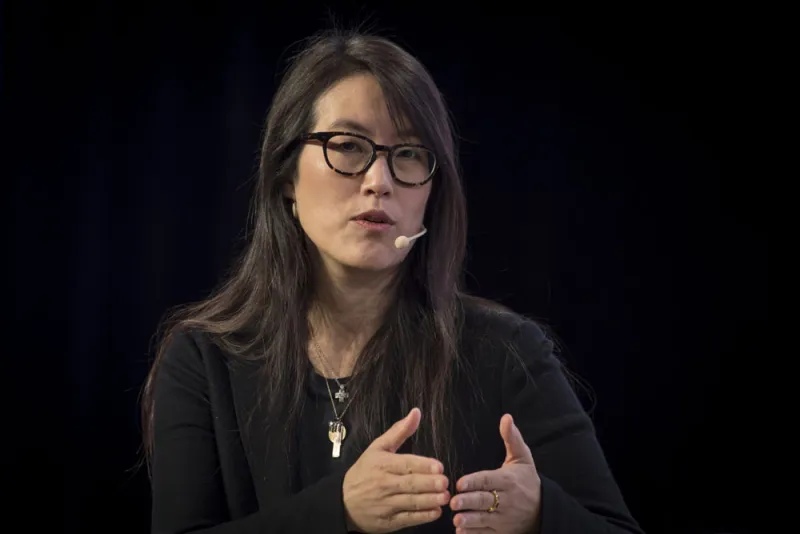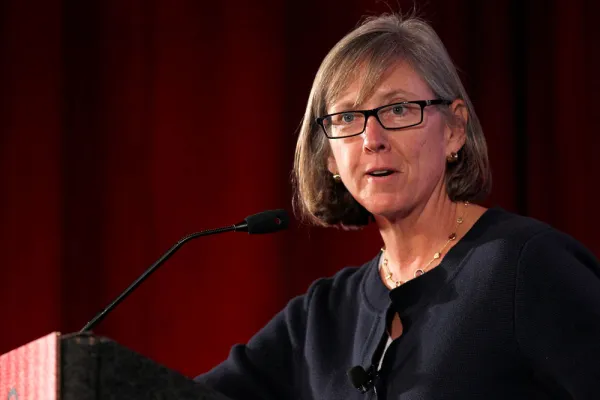Ellen Pao’s high-profile gender discrimination lawsuit against venture capital firm Kleiner Perkins left a “dramatic impact” on the industry – but it hasn’t changed male investors’ inclination for investing in companies founded by women, according to a new study from the National Bureau of Economic Research.
For two decades before the discrimination trial ended in 2015, the rate of hiring new female senior venture capital professionals in the U.S. hovered at a consistent 8 percent. In the years after the trial, however, the percentage of women hired in the venture capital industry increased by 50 percent, according to the study by Wharton School professor Sophie Calder-Wang and Harvard University’s Paul Gompers and Patrick Sweeney.
They found that the hiring rate for women increased steadily and incrementally over the last five years, landing at 17.7 percent in 2019. The researchers argued that the “high-profile” trial was a key component in this step toward gender parity in venture capital.
The trial revolved around a lawsuit brought by Ellen Pao, who in 2005 was hired by Kleiner Perkins Caufield Byers for the role of chief of staff for John Doerr, a managing director of the firm. Seven years later, on May 10, 2012, Pao filed a gender discrimination lawsuit against Kleiner Perkins, alleging that she was overlooked for a promotion due to her gender.
The suit, which went to court in 2015, received ample media attention due to its high-profile status and testimonies from Silicon Valley stars. On March 27, 2015, the court concluded that Kleiner Perkins had not discriminated against Pao.
Calder-Wang, Gompers, and Sweeney attributed the trial’s effect on women in venture capital to its wide reach: The Pao trial was “widely covered in the broadcast and print media,” resulting in increased exposure among venture capitalists to issues specific to women in the sector. The researchers surveyed state-level Google search trends for the Pao trial in order to determine which states had more exposure to the case. After the court decision, researchers found states with higher Google search trends had the largest increase in hiring of female venture capital investors.
“The most important key finding here is that attention can change behavior,” Gompers, a professor of business administration at Harvard Business School, said in a phone interview with Institutional Investor. “Based on the identification strategy we have in the paper, we can conclusively show that there’s a causal impact of this attention to the trial.”
For Gompers and his co-authors, this “causal impact” is evidenced in the exposed states’ mandated maternity benefits, which they used as a tool to measure the receptivity of exposure to gender inequity issues in venture capital as a result of the trial. In states with high exposure and receptivity, the trial had “a dramatic impact” on female hiring, the study said.
[II Deep Dive: Venture Capital (Still) Has a Gender Problem]
“I think it speaks to how broader social movements are likely to have impact, but that impact is likely to be largely mediated or largely more significant in areas in which the general culture is receptive to those types of messages,” Gompers said.
While the trial had a measurable effect on the number of women in the industry, the researchers suggest the impact did not extend far beyond hiring. From 2015 to 2019, the percentage of female founders receiving venture capital funding only increased by about 2 percentage points, according to the study.
“The data still isn’t gender parity,” said Gompers said. “I still think that there’s a long way to the industry has to go.”
When conducting the study, Gompers and his co-authors explored whether the increased financing of female founders was caused by an “increased propensity of male venture capitalists to invest in female founders.” But, according to the study, there was no increase in investments by men in female entrepreneurs after the trial. Instead, the uptick appeared to be linked exclusively to the increased representation of female venture capitalists in the industry.
“Overall, our results are consistent with the view that exposure to important social issues can affect inherent bias in hiring, but the debiasing is dependent upon the receptivity to the exposure,” the paper said. “The exposure effect of the Pao trial, however, was specific to the gender bias in hiring of female investors, not a general exposure to gender bias issues broadly.”
Even with the increase in female venture capitalists, female participation rates in venture capital remain among the lowest in the financial services industry, ranking below those in fields such as consulting and investment banking. Gompers said he attributes the lack of gender parity in venture capital to an effect which entices people to “invest in people who look like them.”
“Those are the people in your network,” Gompers said. “So men disproportionality invest in men. Women venture capitalists do have a much higher fraction of their investments in women-founded companies and startups. So this lack of gender diversity in venture really affects the ability of female founders to get capital.”







